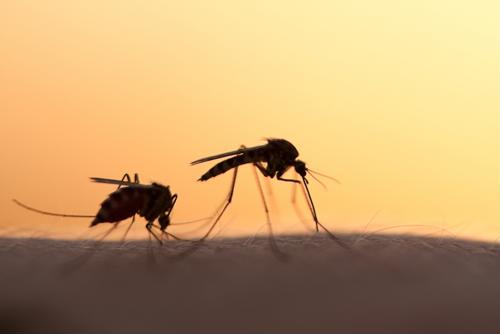Being outdoors during the warm weather season carries with it the risk of bites of all kinds – insects, animals, ticks and others. Here is some helpful advice for treating bites and itching.
Check the symptoms.
Most insect bites and stings are mild, causing minor symptoms like itching, redness, stinging or a small degree of swelling around the bite. In some rare cases, stings from hornets, bees, wasps, scorpions or fire ants may lead to more serious reactions. The Mayo Clinic advises moving away from the area where you were stung or bitten to prevent further injury. Then, try to remove the stinger if needed, and wash the wound with soap and water.
For tick bites, remove the tick immediately.
The Cleveland Clinic says the longer a tick remains attached, the greater the risk it will pass on bacteria or Lyme Disease to you. Use tweezers to pluck off the tick, and then wash the bite area with rubbing alcohol.
 Successfully treating animal and insect bites depends on the severity of the injury.
Successfully treating animal and insect bites depends on the severity of the injury.Apply relief.
Using a clean, damp cloth saturated with ice or cold water, apply a cool compress to help with the pain and decrease swelling. If the bite is on your leg or arm, raise it slightly above your body. To relieve the itching, use calamine lotion, baking soda paste or hydrocortisone cream as often as needed. You can also take an over-the-counter antihistamine medication such as Benadryl to alleviate the discomfort. If you experience more severe symptoms such as rapid heartbeat, difficulty breathing, swelling of throat, eyelids or lips, call 911. An epinephrine injector like an EpiPen can also help in this situation.
In case of animal bites: clean, treat and bandage.
American Family Physician reports that dog bites are responsible for 1% of all injury-related ER visits in the U.S. and cost more than $50 million in inpatient care each year. AFP recommends cleaning bite wounds and irrigating them with saline solution. Then, check for bone or tendon injury, and remove any foreign matter. If the wound is minor, the Mayo Clinic suggests applying antibiotic cream and covering the area with a clean bandage. However, if the wound is more severe – for example, if bleeding cannot be controlled, or you have a deep puncture or torn, crushed skin – the Mayo Clinic advises applying pressure to stop the bleeding and then seeking immediate medical care. You may be at risk for rabies or tetanus, so it’s important to act quickly.
You’ll also want to talk to your doctor about iPAK by Innovative Outcomes to get prescribed wound care supplies delivered to your front door, giving you all the tools to promote wound healing at home.





